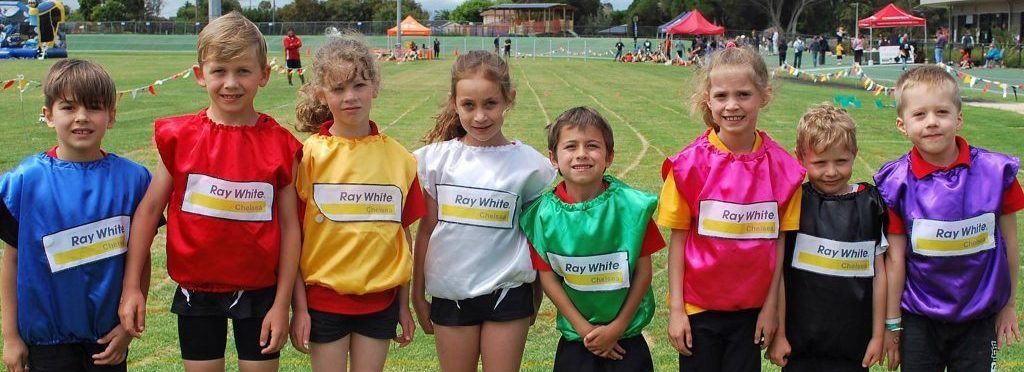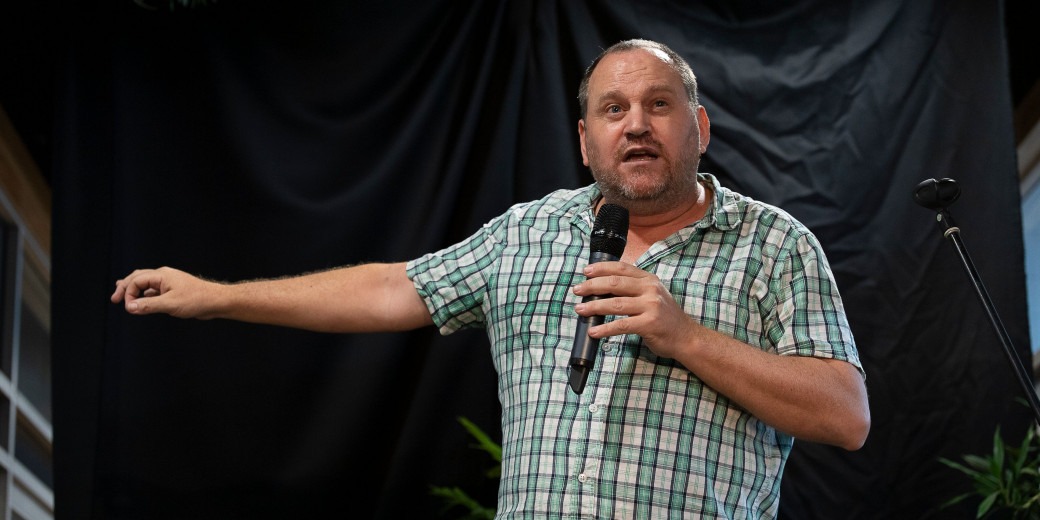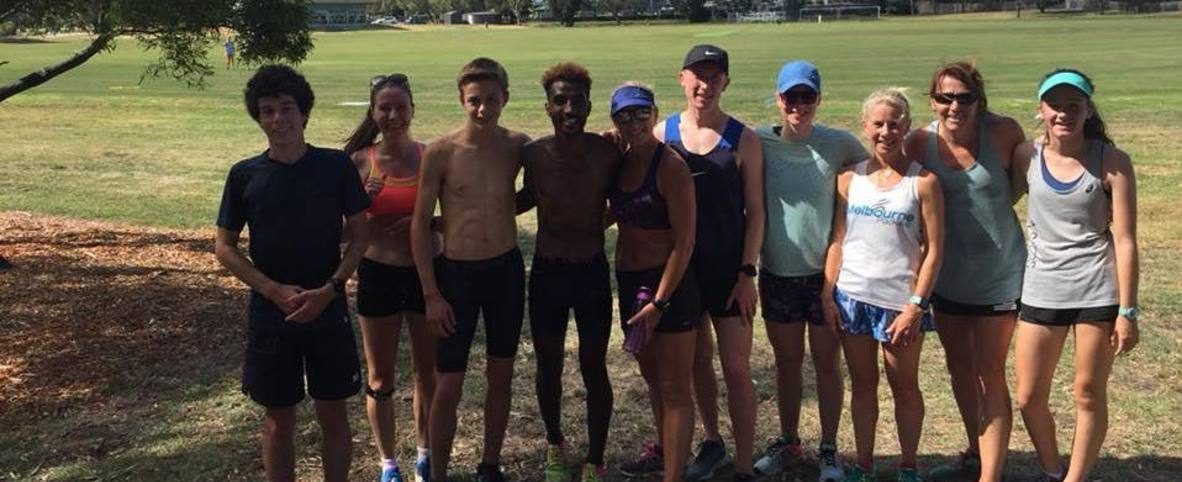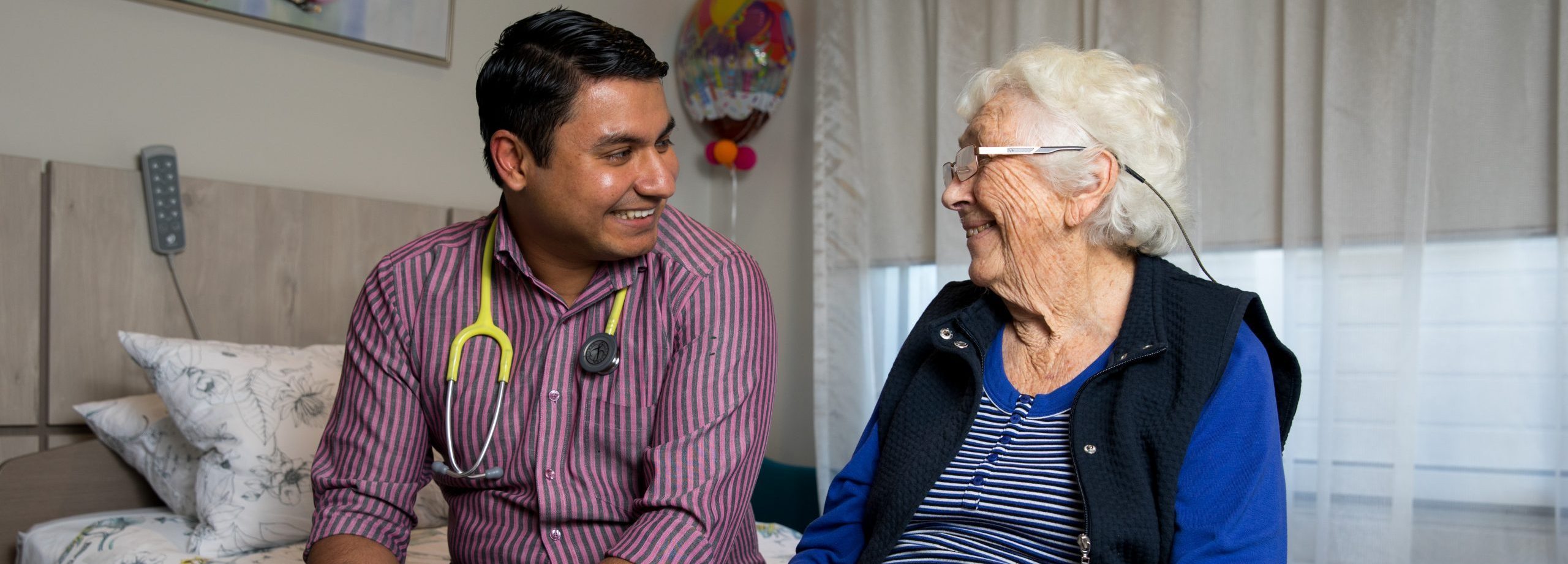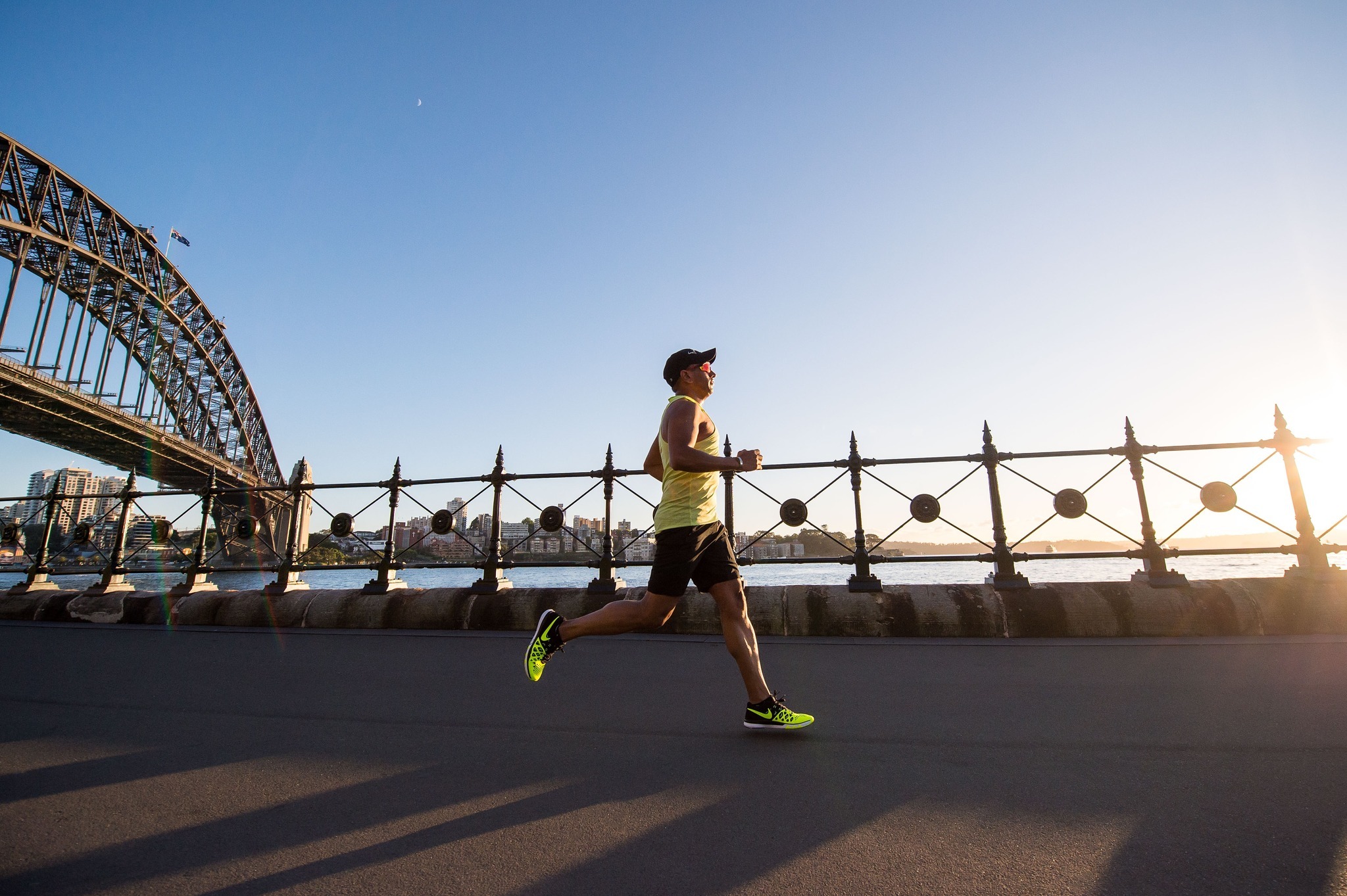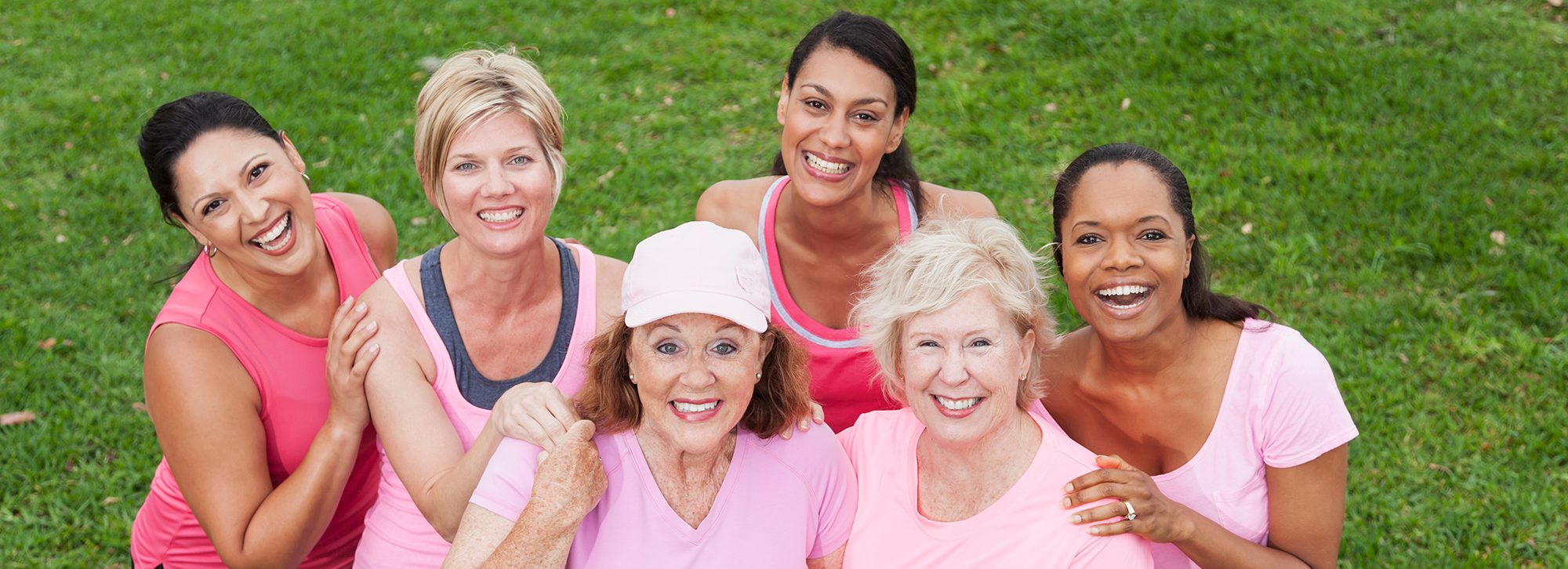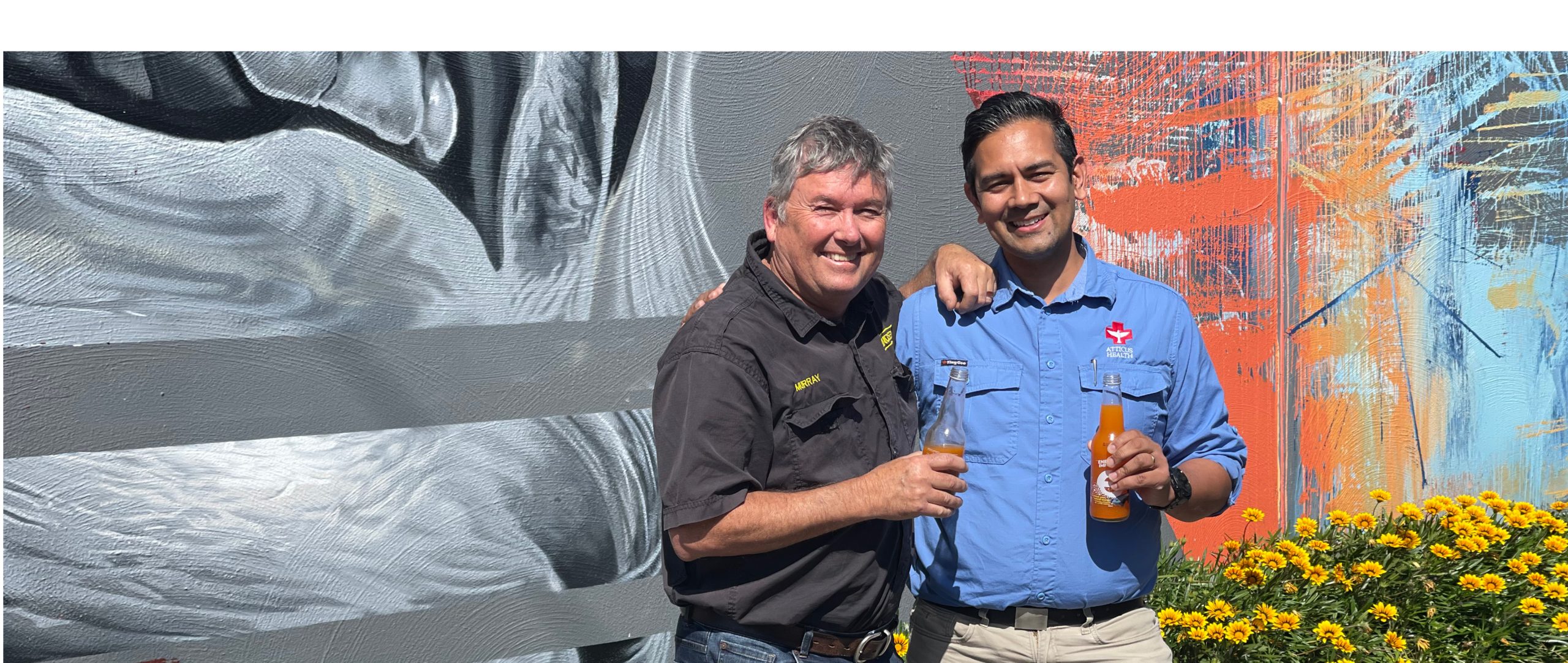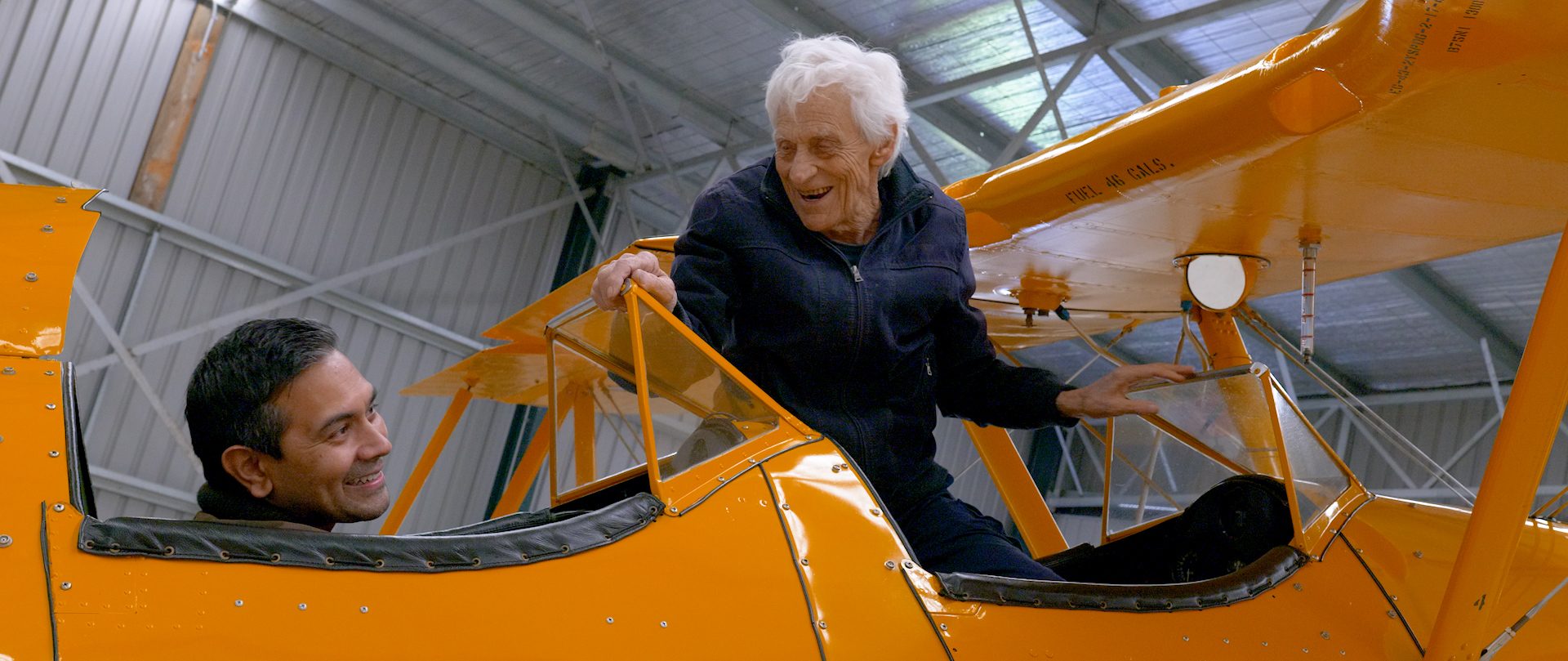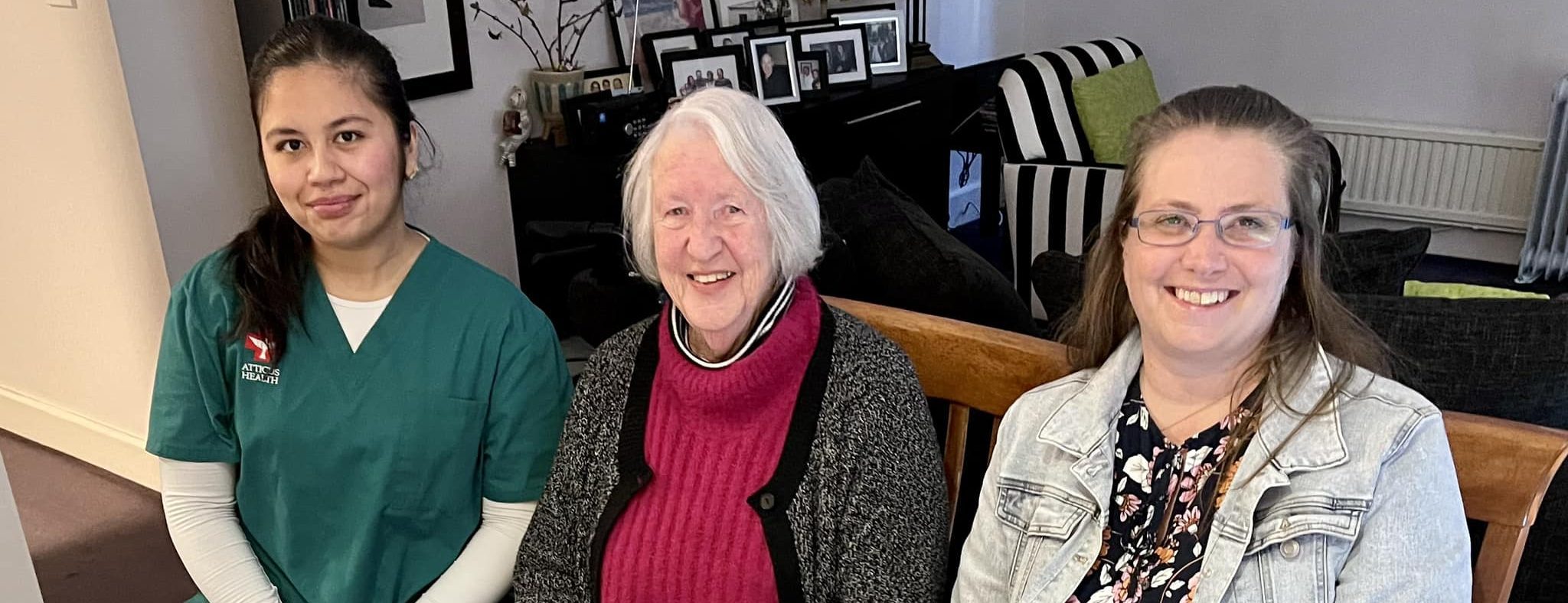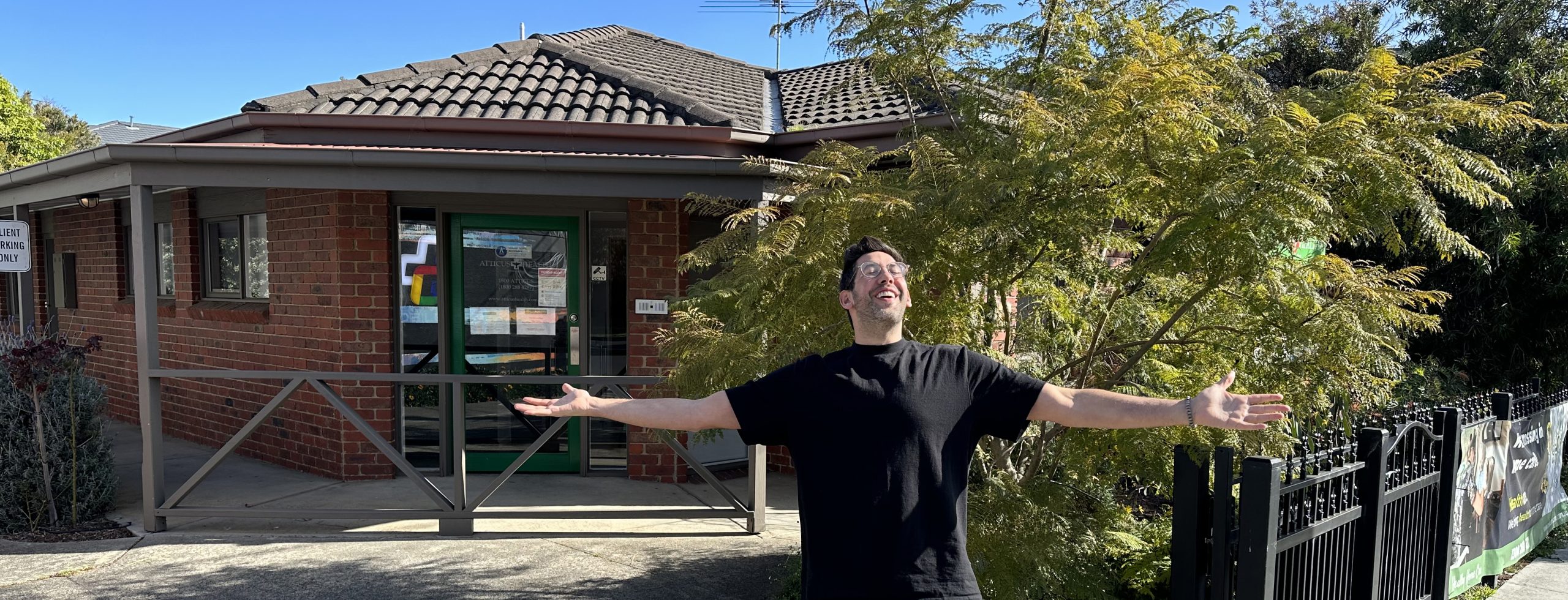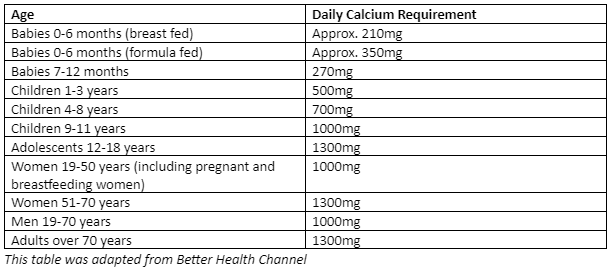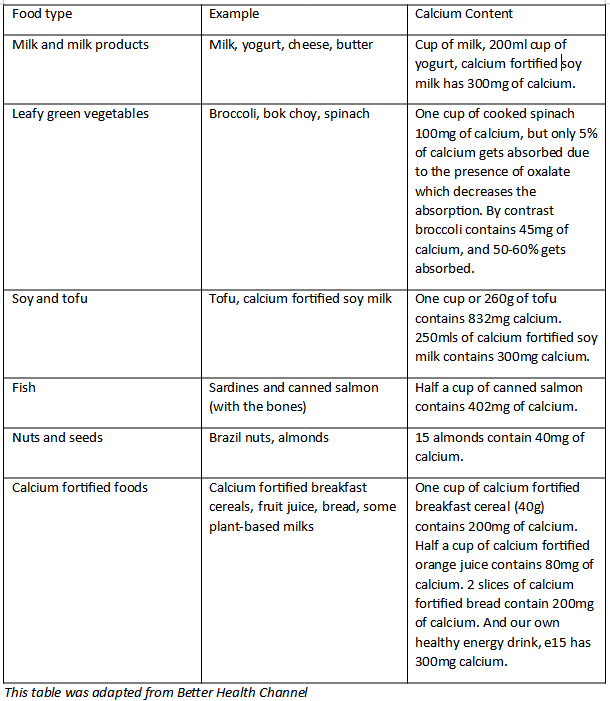Brett chats with comedian Will Crawford about his experience living with multiple sclerosis (MS).
Floyd Gomes
We all have pressure in our lives and pressure makes diamonds. And yet, in the heat of a moment that pressure can lead to various ways that we handle a situation, either aggressively or bringing out some degree of kindness. And that’s what diamond kind is about.
Brett Thiedeman
Welcome, everyone to another episode of the Diamond Kind podcast. I’m your host Brett and today we have a truly inspiring guest with us. Joining us is Will Crawford, a lawyer, youth worker filmmaker and comedian who has just returned to Melbourne after living in Darwin for 15 years. He’s an experienced stand-up and sketch comedian who has previously written for channel 31 sketch comedy show the entire missionary position will has a comedy show that touches on his recent diagnosis with MS and how he has used comedy to process this and also educate people about MS and kindness. He has a unique and powerful story to share. Welcome, Will.
Will Crawford
Hey, Brett, thanks so much for having me.
Brett Thiedeman
Oh, yeah, nah it’s so good. And I was just talking to you before about, you know, the recent some of the YouTube clips that you sent through and you know, which were really, really inspiring. So I’m really looking forward to the conversation today.
Will Crawford
Oh very kind very tired.
Brett Thiedeman
Okay, let’s do this. So well. Let’s just start at the beginning of your journey. Can you share with this? Your initial reaction and emotions when you were diagnosed with MS in late 2021?
Will Crawford
Yeah, it was a little bit dramatic. In the I think it was September 2021. And within the space of four days, I got my first symptoms like I started off thinking I stumbled a couple of the times when I was getting up going to the bathroom. I play golf in the mornings. And then at the talent of golf, I had a massive sleep. And I don’t normally do that. So that was on the Saturday and Sunday. And then the Monday I had a couple of symptoms and started to get some pins and needles and numbness on the face. And like any typical Aussie male, I said, she’ll be right. And then the next day I went to work, which was Tuesday, and I’d mentioned that to him. He says I should probably get to a doctor, and then I’ll get to eventually. And then once I got to work, my eyesight went so I could only see about five or 10 meters, my sight all went blurry. And then I turned to my mate at work. And I said, Ah, that’s normal isn’t he said no. It’s not normal at all. So he raised me off to the hospital. They did a whole lot of tests, because there were they thought it might have been a stroke initially, because the pins and needles was one side of my face. But thankfully it wasn’t wasn’t a stroke. And it wasn’t a tumor, anything crazy. And then the doctors did a whole lot more tests. And it was probably Ms. And we got to run some more tests, which they did. And they also gave me steroids, which I’d never ever had before. And I’ve also never used cocaine, but apparently it’s and it was I was out of control. I thought it was the world’s greatest. So I had my laptop with me. And I sent 400 emails that day, and I had no idea what was in front of them. But the good thing at the tail end of that. So once a diagnosis came in, yeah, I felt it was a challenge. I was super isolated because I was living in Darwin, but all my family and friends were in Melbourne. And also transit was at the tail end of COVID people couldn’t visit. Like we were in a COVID bubble, we had our borders locked. So that was a challenge and difficulty. And then I think the first four days was super hard. And like a lot of people you get into the woe is me, why all that kind of grieving stuff when you get and you know, because the difficulty is with an MS diagnosis theory can be really bad and it’s early days. So there’s uncertainty. But then what helped me was I just reflected on the worst case scenario, which is a strange way of going about it. I said, Well, worst case scenario is I lose my mobility rarer all these things happen. But the upside is I would move back to Victoria and be with my family, which I’d been away for so long that that was a really driving force and it made me realize that that’s the most important thing in your life for me. Yeah, and also though the human connections and friends is is everything. And so that helped me actually sign it and that was about the day format. There’s lots of others. things that helped me process and understand things as well. But I think also just also being an I’m a big fan of sharing, and being honest about things. And I was honest with my work and they were really good and was supportive. Same with my family and everything. And I feel that when you’re on us, it kind of takes a load off, you’re not hiding anything. So they’re some of the challenges. But then, and I’ll talk about it in a little bit, I was so lucky to get amazing support from medical people allied health, so that I’ve feel that my condition now is really good and manageable. But back then it wasn’t. And I’ve come a long way. So I feel grateful now. And it was a challenge, but also just so thankful to have got the support audience.
Brett Thiedeman
Yeah. So before we get on to the healthcare professionals is like just going back a little bit now. And you mentioned experiencing some challenging symptoms like the blurred vision and dizziness and numbness and pins and needles on on one side of your face. To describe, we’ll let you know what it was like to live with the symptoms before starting the treatment.
Will Crawford
Yay, it was and I was in a slightly weird situation where I couldn’t start my treatment for three months because of COVID My doctor said that the medication would counteract the COVID vaccine. So we had to let the COVID vaccine continue to take hold and so I couldn’t start my meds for three months. And he also said I’m not even sure the meds are work. I hope they do. They don’t work for everyone. So the I was in this for three month period where I couldn’t I couldn’t drive and I’d been a really active guy was running a big Youth Work Program and charities and goals and was a comedian all these things so I kind of slowed down a lot of that. And yeah, I was really struggling with my walking as well. Like I was getting rid of dragging of my left knee and and going for walking and getting exhausted and dizzy and that kind of thing. So it’s full on. But yeah, so the eyesight dizziness and fatigue was probably the biggest symptoms and the leg dragging stuff and also i i overheat if I exercise for more than say five or 10 minutes. So that was also a challenge. So they Yeah, I had some pretty big symptoms. And also I I wasn’t allowed to start meds yet and B I didn’t even know if the meds would work they did so I’m absolutely delighted so yeah, it was good. So but the nice thing was work let me work from home I got a meal service. Bharat was on the phone to my mom every day just sort of you know, touching base and and had a whole lot of friends dropping in food and saying hi, because I couldn’t really get out of the house very easily. Big challenge but at the same time that’s the beautiful thing of these things is that the silver lining is is that you know some lovely people touch base and and also your focus on the positive because I could still do a fair bit. Yeah, still communicate could still work. So I still getting my income. And my work was been good to me sides. Oh, yeah. It was challenging, but it could have been worse. Yeah. So
Brett Thiedeman
it does sound very optimistic. You know, the that again, that that waiting period of three months and you sort of mentioned how it affected you physically. What about mentally?
Will Crawford
Yeah, it was a challenge because i You were waiting a baby you didn’t even know if the meds would work. And so you kind of go oh my god be stuck like this forever, which would which would sack but the other thing is, I’m fatalist and and you kind of go you can only do the best you can do in any situation. And I had a whole lot of really capable people around me saying, This is how we’re going to do it. And, and, you know, we’re pretty confident that the drugs are really good these days. Plus, I had, you know, you know, food on my table. I had a job and I had people touching base and caring for me. And so it’s like, yeah, it was hard, but at the same time, I think the weird thing for me, was that that day for mark where I kind of accepted the worst case scenario helped me through that because it was like, yeah, it might be that but I’ve already accepted If it is really bad, we’ll find a way. So I’d kind of embrace the challenges back then. And so this was all just the path going forward. And in actual fact, it wasn’t all bad. So I tend to try and go, Well, what can I do? And what can I control? And what are the good things I can do. And you can do many exercises, which had a physio helping me with bits and bobs, you can touch base with them. And as I said, I was able to work. So there were some really positives that I took from that going while there was, you know, people, if it had been a tumor or a stroke, or would have been worse, you know, they could have, you know, so yeah, for me, it was just take whatever I could, and you make do with what you’ve got at that particular point.
Brett Thiedeman
Yeah, that’s really good. Thanks for sharing that. So it was really that that acceptance, as you said, after after day four, yeah, it really sort of helped you on that.
Will Crawford
Yeah, that was my biggest moment. Why going? Well, whatever happens, I’ve got beautiful people around me, but also, I can deal with it, you know, in the sense that, you know, I’ve been so lucky in my life, and I’ve done amazing things. And amazing people worked amazing areas, whatever happens, I’ll deal with, because I’ve had a very good luck already. And whatever happens is a bonus. Because, yeah, that’s kind of how I dealt with it in my brain is like, Yep, it might be a challenge. But also, I’ve been pretty lucky along the way. So we’ll work through it.
Brett Thiedeman
That’s an amazing way to look at it. You mentioned a few times, we’ll as well that the support, you know, that’s, that’s been crucial to you, as well, you tell us more about the role of the healthcare professionals and organizations, which played Yeah, played a really,
Will Crawford
really important ones for me, partly because Ms. I didn’t really know much about and, you know, I’d known about it as a kid when I did the MS read a THON, and, you know, you hear about, you know, back in the day where, you know, there were no cures, there were no drugs, and also people, um, you know, potentially had really bad quality lives. But then my neurologist who was super busy, and he said, Well, I can’t explain all of it to you. But please ring this mob called, was the MS Society of SA and NT, because he said that we’ll be able to explain it to you. But he, he said, I’ve got some really good drugs that often work. And that for a lot of people, MS is not necessarily it’s not a death sentence at all. But it’s also even the quality of life is not bad. So just talk to this person, because, you know, he was in the middle of rounds, and super busy. And then I did and she said, the the doctors, right, he said that the drugs are improving all the time. There are some people who live, you know, 30 years and even don’t have a lot of symptoms. But there are some people who have terrible symptoms, they get worse every day. So there’s a huge spectrum. But the good thing is with the advancement of drugs, and diet, which is a really good thing, people are a help on managing their MS much better. And it just depends where you sit on that. But not only that, there’s also things which I didn’t even know about the NDIS, which is a national disability insurance scheme, which provides additional supports, plus, there’s, you know, the medical system. And then the weird thing, which worked really well for me, because I was in Darwin is that during COVID, the hospitals in Melbourne, Sydney, and the East Coast in Brisbane, were under the pump because they had so many COVID patients. We didn’t have any COVID cases in the intake. So what that meant was arguably I’m in the NT getting in a hospital that’s functionally normally and has meds and has a neurologist and has and where they even had a rehabilitation team with physios and OTs around me, giving me time and talking me through it. So in a weird way, even though I was not able to see my family in Victoria, I was better off being in Darwin because I had this amazing team. And that’s I think that I think hats off to the medical profession. And people often criticize the system for not functioning but actually it was good. I got straight into er, I got seen by neurologists very soon they discounted everything it wasn’t. And then he referred me to support services plus Rdh or Aldo and hospital had its own rehabilitation doctor. And she basically linked me in with everyone to make sure I was getting support. And so yeah, so it’s about 12 I had a month that I was in Darwin with it. And then I came back to Melbourne at Christmas. But right up into the year, I think was about a month while I was up in Darwin, I felt really well supported. And, and the other big thing, which is partly while I’m doing the show is people explained to me what it’s about. Yeah. And, and that was why the MS nurse, and that was the person I spoke to very early on, she said, this is the steps that are going to happen. Now, we’re going to do this, this and this, good doctors gonna do this, you need to look after yourself by doing this, this and this. And the big ones were probably don’t go out dancing and fatigue yourself and start in the middle of the night because I used to be out. Because I was a comedian, I was out of slowdown, you got to eat healthy, you’re going to get regular rest. And all of all of this and will link you into these services. And the good thing is, with the NDIS, they are able to give me you know supports in lots of different areas, including physio and OT. And yeah, and I felt that by having those procurement professionals by my side, walking me through it made what was sometimes, you know, there’s a lot of hoops you got to jump through, but I had people next to me, do it with me. And that was pretty cool. Yeah, I was really and yeah, the MS Society of Sen and 10. The Victorian equivalent is Ms. PLAs did a great job. And then since then, the other thing, which I didn’t say is once I started my drugs, after three months, most within two weeks, all of virtually all of my symptoms went. So it was like it was like a man I woke up one day could see clearly. Like, whoa, yeah, so that was a beautiful thing. And the other thing in terms of the mental health, which you mentioned, was getting the support of those around you and I was just lucky. But I was a comedian. I do a lot of comedy shows, but other comedians, and they organized a comedy roast to you, across what a comedy roast. Is.
Brett Thiedeman
Anyone gonna just quickly explain that? Yeah,
Will Crawford
so what it is, it’s a comedy show where a whole lot of comedians get together, and they poke fun at at a selected person. And it was and in this case was made. So the great irony is that, you know, I was, and this was prior to my symptoms improving me starting the meds, I was taking six months off comedy. And they all got together and we organized a comedy roadshow, about 30 comedians all got together, and, and we’ve had about 10 or 15 of them jump up, and everyone did a couple of minutes. And they all you know, poked fun at me and, you know, pointed out my great character flaws and everything, but because it was done in a loving way, the irony is I felt more loved and appreciated than any time in my life, because these people cared about me and also knew about my passion for comedy and, and had come together to be mean to me in a nice way. But it’s a comedian thing. But um, but they’re the kinds of thing and people do it differently. But looking after others, and this is the other thing, tau that more recently, I’ve got a lot of help. In in and I didn’t only started it probably about six months ago as attending peer support groups online. were fantastic. Like I, I kind of, you know, sometimes you just think you’re on top of things. Like I’m fine. I don’t need that, you know, I’m doing this I’m doing well. And it’s like, yeah, you’re doing well. But at the same time sharing with others you learn from others, but also you can you can also share your things with them as well. But even it, yeah, it’s kind of inspiring, because, you know, I’m relatively lucky in that my symptoms are going well at the moment. But for lots of people, it’s up and down. A lot of people are doing well. But also people are doing well for a long time and you’ve got people in my group. So parents and professionals have been managing it for 20 years and doing really well but still sharing that they’ve still got to be careful. This and you know, I’ve got to think about my kids so I try and avoid this and this are this is how I’ve I’ve worked with my work to try and explain my condition and try and get flexible work arrangements. It’s obviously a lot easier as a as a lawyer. I’m not a bricklayer So I’m not I’m not a physical labor, I can do a lot of things online, which which makes it a bit easier. But yeah, I’ve I’ve really gained a lot on and the MS plus organizes, I think it’s called like working with Ms. So like their peer support for people with MS. And they have guest speakers every week, right. And then you might, you know, learn about from a dietitian or a physio or a nurse or, you know, and then you and then everyone, oh, you know, share stories, but also reflect on one person. And it’s been really good. And it certainly helped me understand things and feel a little bit more in control of my own journey, which is lovely. And also you make lovely connections with nice people. So yeah, yeah, no, that’s
Brett Thiedeman
great. Thanks for sharing that. And it’s a good tip for anyone listening as well. That’s in a similar situation. And now you spoke about comedy. Are you able to tell us about the comedy show Rocksteady baby?
Will Crawford
Well? Yeah, absolutely. So I think I sat down to write the show, probably about six or 12 months ago, because I’m about two years into my diagnosis. And I originally congener I’ve, you know, would be doing comedy, you know, at least once a week and talking about lots of things and I’m, I tend to be trying to be quite silly about my comedy. And then I thought, well, how can I make my journey, both educative, but also entertaining and I mean, that in a, in a legitimate way to try and de stigmatize, you know, disability. And there was a really good program by guy by the name of Andrew Denton about 20 years ago, he was a very famous comedian, and he did a lot of work with cancer kids and would go on cancer with the canteen organization and, and sit down with kids and write comedy jokes with kids with cancer. And it sounds like a weird thing to do. But what it did was, it was a beautiful program and project. But what it did was it was about writing those jokes together and seeing what they wanted to laugh about. And where they found joy or even just wanted to let off steam now my shows not not so much about letting off steam because I’m it’s largely about gratitude and thanks and stuff. But I, what I was very interested as a comedian is how to find laughs in dark places. And interestingly, like, going back a long time, Shakespeare did that a lot with his comedy, so would often be half tragedy, half comedy. And it was very common for him to introduce funny characters and to be crazy and absurd. And then the next scene might be serious, and then jump back to the comedy and, and do that semi regularly right now. It’s a really interesting way because what it does is sometimes it in it allows people to vulnerable vulnerably think about something but then also de stress and let go from am from those difficult feelings by get back into the comedy. Yeah, and that’s what I’ve attempted to do. I’m not
Brett Thiedeman
you’ve done a really good job. You know, after I watched your YouTube, the YouTube clip, and yeah, and I can see that well. So like, I felt that and I sort of connected with that when I watched that clips, just the, the mix, as you said of the Yeah, being serious and, and putting some, you know, light humor into it as well.
Will Crawford
Exactly. And part of and this also helps being Canadian, because that’s one of my passions, I’m good at writing jokes, but also, I like to poke fun at myself. And if you can poke fun at yourself, but also your misunderstandings of the world or even even the difficulties of the health system. And you can poke fun at that and how difficult is to navigate or not. There’s there’s jokes to be found everywhere. And I that was my thing. I wanted to find some joy and comedy in that but also shared the real story as well. So both a real story but also LinkedIn with jokes. And that’s why I wrote it. I also was interested I thought that’s going to be hard to do so I wanted to write it but also I think it has the benefit of saying this is my story and and this is how I’ve walked this path and poking fun at myself and law I think is part of me accepting. And that’s my journey and I’ve hope that others can see that. And yeah, and maybe it helped with their journey or even if they’re not got these conditions that might help people understand you know, autoimmune issues and, and chronic diseases that don’t always visible, because that’s one of the challenges with MS is some days are good and some days you’re fatigued, overheating and I have to wear ice vest under my shirt some days if I’m struggling and have to go outside and, and it just is. Yeah, and and you know, I even had a work trip coming up on on Thursday, and they were gonna do a late night drive. And I said, Hi, you know, with my fatigue, I’m probably the safest human to be driving a car in the evening because I might be fatigued. Yeah, of course. Yeah. So you can maybe to do a little bit of driving during the day, but probably when I’m already fatigued, so you can make a joke about it. And then people go, Oh, of course. Yeah. But yeah, so for me, comedy is part of enabling others to understand the conditions. And yeah, so hopefully, people can take a little bit of that from the show. And also, I have a lot of laughs, which is as a comedian. I love making people laugh. And so the way I structure the show is I do the first half is my normal, crazy comedy, where I try and get lots of last 3060 seconds. Yeah, do crazy jokes about everything. And then gradually I transitioned into my story, but then I still try and keep the jokes coming every 60 seconds, and then that hopefully, people are ready and learn something and have fun at the same time.
Brett Thiedeman
Now, that’s great to hear. And I think you talk about kindness as well. And I think you’d agree that you know, kindness truly does have the power to transform lives. And you do talk about it as well. But I’d like to get probably to the heart of of today’s episode and on the diamond con podcast and just ask you about a time where you could if you could recall a specific time when you were under immense pressure, and you managed to come through with with kindness.
Will Crawford
Well, I wouldn’t say it was my kindness, but it was a kind I said, if someone else saw with my condition. You know, I had I needed a physio, but also I would overheat. So I can’t really do a lot of cardio. So that’s one of the ongoing thing. So I’ve got a and this was in Darwin, I was having a physio who has given me lots of like, five to six minute increment exercises, and you got to take a break. And she would, she was wonderful. And then she said to me, Well, what activity do you really love doing? Like, what are the things so that we can design things that you’re going to like doing as well. So it’s not just a boring? And she said, I said, What as a kid, I’ve really really loved breakdancing. So as you know, I was like, you know, watching, you know, rage and whatever, and doing all these dumb dance moves in my house and you know, the usual 10 year old thing and she’s okay. So what she did, and this is where the kindness comes out. She sat down and did a whole lot of YouTube tutorials herself or learning how to do breakdancing and cramping. And then she would design dance offs between me and her in our sessions. And challenge me to learn a move that we would do together but because often they’re quite demanding. So, five minutes of doing a breakdown, she’ll be pretty exhausted. So but she would learn that and within you know, a couple of weeks she was already better than me, which annoyed me knowing then, yeah, and she she turned around to me, which was also I think, quite fine. She said, We’ll you know, it’s not such a bad thing that you’ve got this Ms. And you can only do exercise to five to seven minutes because it means your sex life will be entirely unaffected because I hear you only go for two. And so she was doing a comedy roast on top of that, no. That was fine in it. Like in a weird way. Yeah, you kind of go. She was so kind that she made the effort to learn these dances and to design something that she knew that would enjoy First of May. But then she also was able to make a joke about it. And I think the last thing, which is such a weird thing to talk about, obviously, as a comedian, I do rows and poking fun at myself is what I do. Yeah. But also when someone when you realize that no one is perfect, and everyone goes through something, having a joke about it, you kind of go Well, absolutely. There. The jokes help you realize that it’s life is there, and it’s real. You’re acknowledging, but it’s also like, you’re just accepting that, yeah, it’s happening. And let’s joke about it. Because if you’re, for me, comedy is part of healing. And that’s what I really think thing has helped me. But also I really appreciate with others, it’s that kindness and kindness to others makes the world better. And and yeah, my physio was very kind that way.
Brett Thiedeman
Absolutely. And just to me over to have a laugh as well.
Will Crawford
Yeah, exactly. And it’s, yeah, I mean, it helps when that’s what I love doing. But also if you can share that and going, just being an idiot and being silly, like I always am, and I happen to also have a unit health condition at the moment, but at the same time, it hasn’t stopped me working. It hasn’t stopped me doing comedy. And yeah, I have to manage a few things to make sure that you know, don’t make my symptoms worse, but at the same time, it’s pretty good and, and I’ll continue doing it but even There’s a famous comedian, I think isn’t as Tim Ferguson who used to be in the Doug Anthony all stars, and he’s got advanced stage Ms. And he does lots of comedy about his health and conditions. And, and I actually think that kind of honesty, and yeah, making jokes about things helps us with healing and acceptance. And so that’s what I’ve done. And lots of other people do it slightly better than me, but it’s what I do
Brett Thiedeman
know. That’s an awesome example. And finally, well, would you be able to tell us, give us some details about you know, where people can catch your comedy show.
Will Crawford
Absolutely. Thanking you. So this show is part of the Melbourne Fringe Festival. So just go to Melbourne Fringe and I think it’s forward slash events forward slash rock, steady, baby, or just Google rock steady baby. Will Crawford Melbourne Fringe, you’ll find it. Yeah, it’s on for two weekends. So it’s this coming Saturday and Sunday. So that’s the 14th and 15th. of October. It’s an early shows I’m doing a 6pm Saturday 5pm Sunday. And then on the second week, it’s Thursday to Sunday, so the 19th of October to the 22nd of October and Thursday to Saturday at 6pm on Sundays 5pm. It’s at 37 Swanson Street. It’s called the theater of improvisation or conspiracy. So it’s basically opposite the Old City Square on Swanston Street, just between Flinders Lane and Collins streets and old building number 37. But you need probably grab tickets online and if it’s not sold out, you could probably get tickets on the door but jump online love to see you there. And in Adelaide, I had a lot of people with MS. And from the MS. Society come along, which was lovely. Yeah, but also a lot of people who didn’t who got to learn about things and have a laugh and see me being very stupid. What I love doing
Brett Thiedeman
now we’ll we’ll share it on our socials and all that for you as well. Well, are there any like? What do you hope that audience will get out of it?
Will Crawford
For me, I think it’s it’s like kindness. I think knowing that kindness drives everything. It’s kindness to yourself as someone who’s having to adapt your life. It’s the kindness that others have afforded me, which I’ve been so grateful for. But also remembering cuz I’ve received that kindness. It’s nice to share that kindness and I can leave you just with one example in the Adelaide show. We had a 19 year old girl who had only been diagnosed like a couple of weeks earlier. And she didn’t know really anyone with Ms. And she came to the show with her parents and her brother. And you know, they were you know, all a little bit nervous about it. But by coming to the show, I they came up to me afterwards and it was really lovely. We had a chat. There was a couple of other people with MS there as well and we were able to talk about some of like more specific stuff out what helps or are available also, maybe to try and avoid eating too much sugar, which tends to make make a mess worse going to Jen she’d given me a box of chocolates, which was. But the whole thing of, we care for one another, I had so much support in my time. And if you can just give a little bit of that, but also there were other people there as well to give better advice than I. If we can help each other, then then people can adapt and cope with anything. So I think, yeah, honesty, acceptance and kindness. And if we start there, it’s not about that start.
Brett Thiedeman
That’s a great message. And having watched a couple as I said before, watching a couple of your YouTube clips and now talking to you now we’ll, it sounds like it’d be incredible show. So I thank you now for sharing your journey and inspiring story with us today.
Will Crawford
Thanks for having me on. And yeah, feel free to come down to the show. I’d love to see you all there.
Brett Thiedeman
Awesome. Thanks well, and to our listeners, thank you for tuning in to another episode of diamond calm and we’ll be back with more inspiring stories soon. Until then take care and stay calm.
